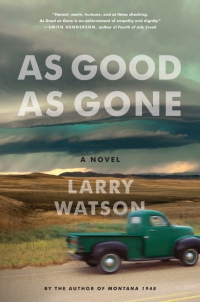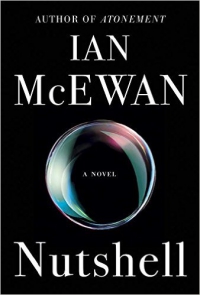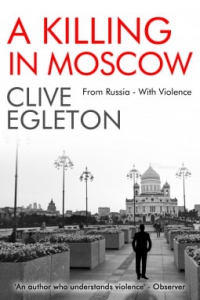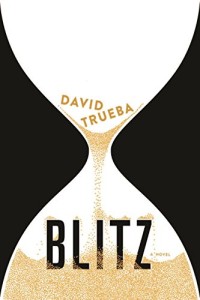As Good as Gone by Larry Watson
 Wednesday, September 14, 2016 at 8:44AM
Wednesday, September 14, 2016 at 8:44AM 
Published by Algonquin Books on June 21, 2016
It’s 1963, but Calvin Sidey seems to be living in the 19th century. His trailer lacks electricity, refrigeration, or indoor plumbing. He rarely sees his son but, without understanding why, agrees to Bill’s request to spend a week taking care of his grandchildren while Bill’s wife is having an operation. Bill later wonders whether his father agreed to help him or whether he is helping his father.
Calvin abandoned his children after his wife died. The circumstances under which he left town are the subject of dark rumors. When Calvin moves back into his house (where Bill now lives with his family), the tension between family members is palpable. What Bill and his wife don’t know is that their daughter Amy is living in fear and that their son Will hates his friends and wants to run away.
After that setup, I thought I knew the direction the plot would take. I was wrong. As Good as Gone is not predictable or formulaic. It builds tension and suspense like a thriller, but this isn’t a novel about heroes battling villains. Nobody in this book is a hero. Nobody is a true villain. Most of the key characters, like most people, blend their virtues and vices into a complex mix that defines them only as human.
The major characters in As Good as Gone are made real by the turmoil of daily existence that occupies their minds. Calvin struggles with emotions that he can’t express and probably can’t understand. He’s in the late years of his life and it isn’t clear that he will ever really understand or tolerate himself, much less another person. The elements of a love story develop but again, it’s realistic, not the idyllic dizzying love envisioned in romance novels. Whether love will endure or be reciprocated, whether it even makes sense, are among the true life questions that certain characters must face.
As is true in real life, most of the threats and acts of violence in As Good as Gone (and there are quite a few of them) are fueled by misunderstandings. Calvin may not have been a good father, but he has the sense that he should stand up for his family. He’s a tough guy, a cowboy who spent his life working as a ranch hand as a means of avoiding responsibility. Unfortunately, he’s impulsive and a bit hotheaded. He doesn’t know what’s going on in his family and some of his assumptions are disastrously wrong. That dynamic gives rise to drama that resolves in unexpected ways as the story reaches its climax.
With its high-quality prose and depth of characterization, As Good as Gone could probably be classified as a work of literary fiction that borrows the form of a thriller, but classifications don’t matter when a book is good. This one is.
RECOMMENDED



